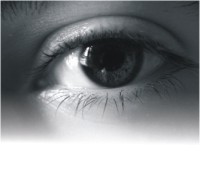Feature
Eye Language
Dr Binoy Barman
 WE utilise different organs of our body to create and convey a wide range of meanings. We use hands to instruct people to stop, run, sit or stand. We laugh to mean that we are happy and cry for being sorry. We move our head vertically to agree or approve and move it horizontally to disagree or disapprove. We show a V-sign with fingers in victory or in the hope of victory. We stamp ground to vent anger and cross our legs for comfort. We shrink our nose to express disgust and specially pose lips and palm to produce flying kiss. These are a few instances of physical signals which are conveniently utilised by human beings. We call them body language. A positive body language in the cricket field and interview may mean a lot. WE utilise different organs of our body to create and convey a wide range of meanings. We use hands to instruct people to stop, run, sit or stand. We laugh to mean that we are happy and cry for being sorry. We move our head vertically to agree or approve and move it horizontally to disagree or disapprove. We show a V-sign with fingers in victory or in the hope of victory. We stamp ground to vent anger and cross our legs for comfort. We shrink our nose to express disgust and specially pose lips and palm to produce flying kiss. These are a few instances of physical signals which are conveniently utilised by human beings. We call them body language. A positive body language in the cricket field and interview may mean a lot.
Body language is visually effective. That is, this kind of language is exclusively dependent on sight or vision. Without vision, body language will be ineffectual and meaningless. Our eyes interpret the physical signals sent out by initiators. Eyes can detect the movement and other manipulations of limbs and extract the meanings with a sense of social convention. Human eyes have the awesome capacity to accomplish the job. It is one of the reasons for which eye is considered superior to all other senses in human body. Lack of vision not only deprives people of the beauty of the world but the wonderful signalling system based on body.
Eye is important as an organ not only for vision which enables brain to understand body language but also for the fact that it has its own language. Eye can be exploited in multifarious ways to express shades of meaning. Drops of tears in eyes talk of pangs and pains. We frown when we are angry or annoyed. We stare or gaze when we are surprised, frightened or thoughtful. Our blithe mood comes out through the dances of eyelids. In fact, all our inner feelings are exposed through those wonderful windows. Our love and hatred, restlessness and calmness, anger and peace -- all find their way through the eyes. Even our hidden sense of guilt and repentance may be betrayed by them. If you are in association of somebody, just look at their eyes and examine them acutely, you will get the real persons.
Pair of young souls chatters a lot with their eyes. They look at each other, spilling all their passion in cornea. They recite the most magnificent lines and sing the most romantic tunes with their eyes. Their eyes are as if wings of birds. They fly away and away, beyond forest and cloud, through stars and nebula, only to fall back to their own heart. Eyes are fantastic articulators indeed. They utter words without any sound. Poets can measure the real value of eyes. Jibanananda Das found peace of nest in the eyes of Banalata Sen. Geoffrey Chaucer found them deadly. More than five hundred years ago he wrote, “Your eyen two will slay me suddenly, I may the beauty of them not sustain, So woundeth it throughout my herte kene.” A young poet (Taylor Porton) of America has written, “I stare deeply into those green green eyes of yours, I see palm trees, deep dark oceans and thoughts. Your eyes alone consume my every movement.” Eyes are so mysterious, so passionate, and so unique!
Poetry aside, the use of eye language has a social dimension. Messages are encoded and decoded by eyes in a socially acceptable manner. Linguists, who study visual signalling system as a subject of paralanguage, say that body language is not a substitute for vocal language. Vocal language is elaborate, powerful and pervasive. On the other hand, the use of body language is very limited and full of vagueness. But body language has one advantage over vocal language. It is more subtle. What eyes can say cannot always be said by vocal organs. Our emotions, aspirations and dreams cannot as easily be expressed by voice as by the light-sensitive pair of organs set at the front of our cranium. None can turn a blind eye to the bare fact!
The writer is Assistant Professor and Head, Department of English, Daffodil International University.
|
